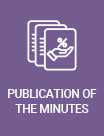The labor market in Colombia: Structural features and the role of wages in the post-pandemic inflationary surge
The series Borradores de Economía (Working Papers on Economics) contributes to the dissemination and promotion of the work by researchers from the institution. On multiple occasions, these works have been the result of collaborative work with individuals from other national or international institutions. This series is indexed at Research Papers in Economics (RePEc). The opinions contained in this document are the sole responsibility of the author and do not commit Banco de la República or its Board of Directors.
Abstract
We provide an overview of the primary structural features of the labor market in Colombia and survey the margins of adjustment of the market during the pandemic. Given the decline of real wages amid the post-pandemic inflationary surge, mainly due to the formal wage rigidity in the short run, we investigate whether the dynamics of nominal wages and their expected adjustments to catch up with prices could fuel the post-pandemic inflationary escalation. For this, we estimate the long-term relationship between wages, prices, and labor productivity using a small open economy framework. We find that up until the third quarter of 2022, wages were not among the primary drivers of the observed inflation escalation. However, wages have typically contributed to restoring long-run equilibrium. Thus, their adjustment towards equilibrium, which can occur through indexation, could imply risks for the convergence of inflation to the target. These risks are significant if the observed sources of the inflationary surge persist.














.png)

































